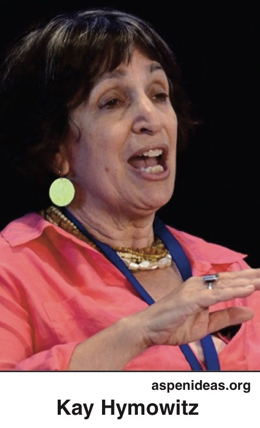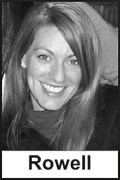Rascals case in brief
In the beginning, in 1989, more than 90 children at the Little Rascals Day Care Center in Edenton, North Carolina, accused a total of 20 adults with 429 instances of sexual abuse over a three-year period. It may have all begun with one parent’s complaint about punishment given her child.
Among the alleged perpetrators: the sheriff and mayor. But prosecutors would charge only Robin Byrum, Darlene Harris, Elizabeth “Betsy” Kelly, Robert “Bob” Kelly, Willard Scott Privott, Shelley Stone and Dawn Wilson – the Edenton 7.
Along with sodomy and beatings, allegations included a baby killed with a handgun, a child being hung upside down from a tree and being set on fire and countless other fantastic incidents involving spaceships, hot air balloons, pirate ships and trained sharks.
By the time prosecutors dropped the last charges in 1997, Little Rascals had become North Carolina’s longest and most costly criminal trial. Prosecutors kept defendants jailed in hopes at least one would turn against their supposed co-conspirators. Remarkably, none did. Another shameful record: Five defendants had to wait longer to face their accusers in court than anyone else in North Carolina history.
Between 1991 and 1997, Ofra Bikel produced three extraordinary episodes on the Little Rascals case for the PBS series “Frontline.” Although “Innocence Lost” did not deter prosecutors, it exposed their tactics and fostered nationwide skepticism and dismay.
With each passing year, the absurdity of the Little Rascals charges has become more obvious. But no admission of error has ever come from prosecutors, police, interviewers or parents. This site is devoted to the issues raised by this case.
On Facebook
Click for earlier Facebook posts archived on this site
Click to go to
Today’s random selection from the Little Rascals Day Care archives….
Click for earlier Facebook posts archived on this site
Click to go to
Today’s random selection from the Little Rascals Day Care archives….
‘Antifeminism’ to blame? Not so fast, Mr. Beck
 Aug. 24, 2015
Aug. 24, 2015
“(Richard) Beck is generally restrained in his narrative, letting the details pile up to a well-deserved indictment of the many players in the ‘moral panic.’ But in explaining how these fever dreams managed to seize the national imagination, he does a little witch-hunting of his own. The frenzy, he tells us, was a backlash by family-values conservatives to the social changes around them. It was a period of ‘an intense reactionary antifeminism.’
“This is an inexcusably partial interpretation. From Beck’s own evidence, feminists themselves were vital players in the hysteria. Gloria Steinem donated money to the McMartin investigation, and Ms. Magazine ran a 1993 cover article ‘BELIEVE IT! Cult Ritual Abuse Exists,’ even though, by that time, the general public had grown increasingly skeptical of the idea.
“In part because of her aggressive pursuit of child abusers – and conviction of a number of people later exonerated – a relatively unknown Dade County state attorney named Janet Reno was picked by President Clinton to become the nation’s first female attorney general. According to Debbie Nathan and Michael Snedeker, the authors of ‘Satan’s Silence,’ (Kee) MacFarlane had been a lobbyist for NOW before she set about terrifying the children of Manhattan Beach.
“With his partisan recounting of the child abuse panic of the 1980s, Beck turns what could have been a careful history about one facet of the nation’s exhausting culture wars into one more illustration of them.”
– From “ ‘We Believe the Children,’ by Richard Beck” by Kay Hymowitz in the New York Times Sunday Book Review (Aug. 21, 2015)
I’m posting this criticism of Beck’s book – from an otherwise laudatory review – mostly for archival purposes. My own interest lies less in the tangled roots of the day-care panic than in its results: defendants wrongfully incarcerated, children profoundly misguided and therapists and prosecutors unjustly unscathed.
UNC experts failed to bring rationality to case
March 4, 2013
“What did Mark Everson, Dr. (Jean C.) Smith, Dr. (Desmond K.) Runyan, Dr. (Doren D.) Fredrickson… all say about behaviors of children who are sexually abused?”
– From Nancy Lamb’s closing argument in the trial of Bob Kelly (March 23, 1992)
Although Lamb was understandably pleased with her parade of expert witnesses, their testimony brought only discredit to themselves, to their professions and to the University of North Carolina at Chapel Hill, especially its School of Medicine.
The prosecution called on psychologist Mark “Where there’s smoke….” Everson to explain away the child-witnesses’ wild inconsistencies and on pediatricians Smith, Runyan and Fredrickson to serve as “educators of the jury” about the case’s dubious physical evidence. (As detailed in this article in the Journal of Child Sexual Abuse, the pediatricians overreached but at least testified with less enthusiasm and more caution than Everson.)
One Chapel Hill faculty member, however, wasn’t fooled by the funhouse mirrors. I’ll be writing about sociologist Anthony Oberschall in Wednesday’s post.
One less platform for ritual-abuse fantasizers
 April 27, 2012
April 27, 2012
Friday news roundup:
■ Darkness to Light, the Charleston-based nonprofit with the goal “End Child Abuse,” has responded to my request to disassociate itself from one of the last promoters of the ritual-abuse day-care hoax. This is from Erika Rowell, program coordinator for D2L: “After taking a long look at the Survivorship website we have decided to remove it from our resource list.”
■ The North Carolina Supreme Court’s latest release on petitions allowed and denied included no ruling on Junior Chandler’s appeal. Next possible release date: June 14.
■ The New York Times reports a jarring increase in the number of retractions published in scientific journals. The Times focuses on heavyweights such as Science and the New England Journal of Medicine, but I have to wonder whether – OK, hope that – this phenomenon might one day extend to the likes of the Journal of Child Sexual Abuse, the Journal of Psychohistory and Treating Abuse Today, all of which failed to apply professional skepticism to the abuse fantasies of their contributors.
A national epidemic of supposed ‘remembering’
Aug. 30, 2013
“The Edenton case is not just a horrifying aberration. Adults across the country are suddenly ‘remembering’ that they were abused as children, and filing civil lawsuits and criminal charges against aged parents…
“Claims of long-ago child abuse, ‘blocked out’ from memory until now, have become a common defense tactic. Unscrupulous ‘therapists’ and sensationalist writers feed the frenzy.
“Anything goes against accused abusers, especially the right to a fair trial.”
– From an editorial in the Arkansas Times (Aug. 5, 1993)











0 CommentsComment on Facebook